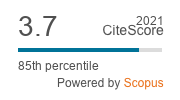Article | Open Access
The Role of Gender in Parliamentary Attacks and Incivility
| Views: | 575 | | | Downloads: | 211 |
Abstract: It has been well established that politicians attack their competitors to reach their political goals. As such, there is a considerable amount of literature on their attack behaviour. However, this literature almost exclusively investigates attack behaviour during campaigns, and so far, few studies have addressed the nature of attacks during more routine times in parliaments. This article aims to fill this gap by examining in-parliament attack behaviour and, more specifically, the gender characteristics of attacks. It is theorised that women are less likely to attack and be attacked than men due to the stereotypical gender roles. However, it is anticipated that this compliance to stereotypes diminishes as proximity to elections increases, resulting in women engaging in attacks as much as men. To limit the cost of their divergence, attacks employed by and toward women are expected to be more civil. Lastly, this study argues that adherence to gender stereotypes is stronger in countries with candidate-centred parliamentary systems than party-centred ones. This study finds support for the theoretical framework using longitudinal data on individual attacks in the parliaments of Belgium, Croatia, and the UK. Results confirm that politicians adhere to gender stereotypical roles in parliaments, with women attacking and being targeted less than men, and when women do attack or are targeted, less incivility is employed. Proximity to elections makes both women and men more hostile, but women lower the cost of their increasing attack behaviour by using less incivility, unlike men who increasingly opt for uncivil attacks closer to elections. Additionally, these findings strongly apply in the candidate-centred system of the UK, whereas in the party-centred system of Belgium and Croatia, hardly any support for the theory can be found.
Keywords: attacks; incivility; gender; parliaments
Published:
Supplementary Files:
© Željko Poljak. This is an open access article distributed under the terms of the Creative Commons Attribution 4.0 license (http://creativecommons.org/licenses/by/4.0), which permits any use, distribution, and reproduction of the work without further permission provided the original author(s) and source are credited.



